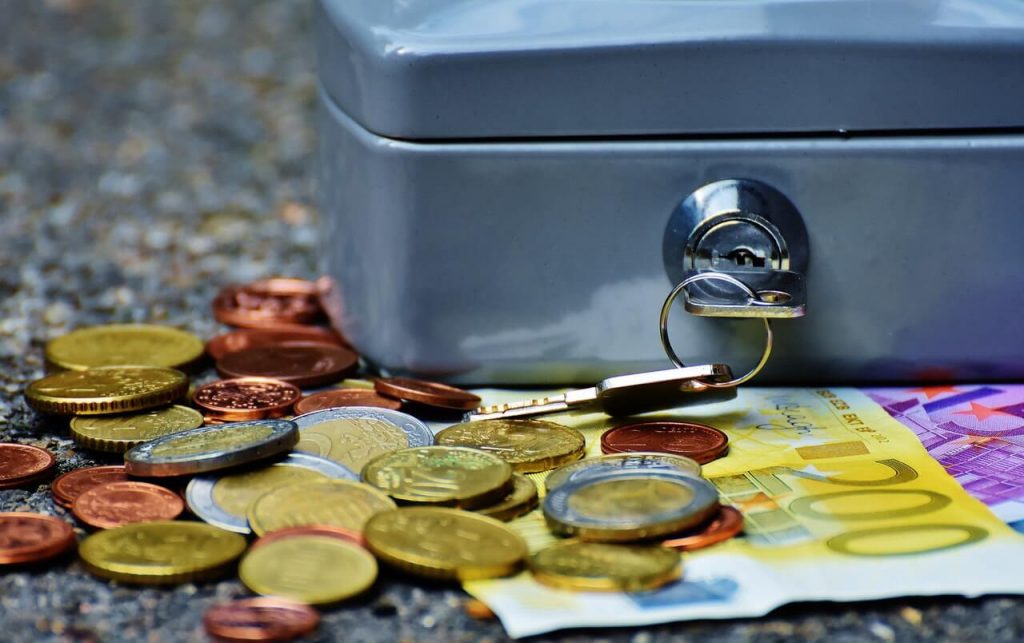Life is full of surprises. We all know how budgeting can become highly stressful, especially when unexpected emergencies that come up are unaccounted for. By creating safety nets, called emergency funds, you will handle these emergencies without having to go further into debt.
Although emergency funds aren’t the solution to all of our financial problems and emergencies, it is one of the key fundamentals to getting ahead financially.
Here’s everything you need to know about emergency funds.
? What is an emergency fund?
Before defining what an emergency fund is, let’s first tackle what it is not:
- You cannot use it for frivolous purchases such as flash deals
- You cannot use it to go on planned vacations and other spending sprees
- There is no fixed amount of emergency fund you should own
Emergency funds are the backbone of financial independence.
An emergency fund is a pool of money stashed away for unforeseen expenses due to emergencies such as medical expenses and unemployment.
You are self-insuring yourself for any unexpected event, and it becomes a safety net that you can rely on during financial distress.
? Why do I need it?
You might be thinking that saving up that money instead of investing it is a wasted opportunity. You might feel secure in your current job, and that credit cards can be your emergency funds. Unfortunately, everyone will face emergencies in their lives one way or another.
Emergency funds serve as financial buffers that will keep you from relying on credit cards and other types of loans for monetary support. These will keep you away from going further into debt if you already have pre-existing loans.
If you are looking into doing FI/RE, having an emergency fund is an essential part of your financial independence.
? How much should I save?

Short Answer
It would be best if you aimed tosaveat least 3-6 months’ worth of expenses. The COVID-19 pandemic became a reminder for most individuals how an economic downturn can impact the job market. We all live in uncertain times with no corporate loyalty. Hence, experts now recommend saving up at least one year worth of expenses.
Long Answer
It would be best to consider different factors, such as your current financial situation, thenumber of debts you owe, your current level of lifestyle, etc.
While having at least 3-6 months’ worth of expenses can cover minor medical costs, saving such an amount may not be realistic for most households, especially those in debt.
For those who are still paying their student loans or mortgages, a $1000 emergency fund may suffice temporarily.
For adults with no children may be satisfied with the standard six months’ worth of expenses. But a sole breadwinner might need to save up to a year.
Therefore, the exact amount of savings you are comfortable with differ depending on individual circ*mstances.
?️ Where do I put my emergency fund?
Wherever you choose to store your emergency fund, the rule of thumb is that it should be highly liquid. This is because emergencies can occur anytime, so having quick access to them is necessary. So this means that you can’t invest it in any way. It will be harder to pull it out in times of crisis.
It is highly recommended to park your emergency fund in a high-interest rate savings account since it can provide liquidity and beat a portion of the inflation rate, preserving the capital.
Of course, it should be separated from your regular savings account so that you won’t be tempted to dip into it whenever you see the huge amount you have saved up.
? How to Build an Emergency Fund?
1. Determine the total
Budgeting is a crucial ingredient in building your emergency fund. Keep track of your expenses for the whole month by using a budgeting app. It is ideal to take a look at your bank statements so that you won’t overlook any form of expenses. Once that is done, multiply that number three times and it can serve as your goal amount for the long term.
In case the amount you have calculated is not feasible for you at the moment, Dave Ramsey recommends starting with a $1000 emergency fund. While this may not be enough for all emergencies, this amount should ignite you to increase your income and pay off anything hindering you from getting your fully-funded emergency fund.
2. Set a monthly savings goal
Once you have determined the total you want to save for your emergency funds, you can build your way into reaching that amount. You can do this by moving money into your savings account each time you get paid.
Suppose your employer makes use of direct deposits. In that case, there’s a high possibility that they can split your paycheck into different savings accounts so that you can automate your monthly savings goal without having to worry about it.
3. Assess and adjust contributions
As time goes by, your income may have increased or you have fully paid some debts. You might want to save even more!
You can also continue to assess your spending weekly and determine more ways to tighten your budget to make room for more savings in your emergency fund.
❓ You Might Ask

- How start an emergency fund from zero?
If you start from zero, it might take a considerable amount of time to build your emergency fund. However, there’s no need for you to feel stressed or overwhelmed with the proper planning ahead.
It is crucial to take baby steps. The thought of needing to save six months’ worth of expenses can be daunting for most people. That is why it’s essential to start with small goals and gradually move up from there towards your long-term goal.
You can reduce your de-motivation by beginning with a $100 emergency fund, then $500, then $1000, so and so forth.
- How much money should you have in an emergency fund?
While some experts highly recommend keeping at least 3-6 months’ worth of expenses in an emergency fund, there are some circ*mstances that you might need more than that. Here’s a rule of thumb you can use to determine which bracket you might belong to.
Having 3-5 months’ worth of expenses is ideal if you:
- Have no pre-existing medical conditions
- Are living a healthy lifestyle
- Have little to no debt
- Are staying in a relatively stable job
- Have no dependents
Having 6-12 months’ worth of expenses might be more sufficient if:
- You are residing in a high-cost area
- Have variable or seasonal income
- Have dependents such as children, stay-at-home spouse, or pets
- Will have a difficult time finding a job
- Have no backup financial support
- Is a $1000 emergency fund enough?
It might not be enough for the long-term, but it is enough for a starter emergency fund. You can use that $1000 emergency fund to motivate you to continue to hustle to build up your savings even more.
- Should you save up emergency funds before paying debt?
Experts have varying opinions about this matter.
While it is true that it will cost you more to postpone paying your debt, if you had a financial emergency and no cash on hand, you will have to resort to getting more debt to cover the unforeseen expenses. Hence, it might be a good idea to store at least a small amount of emergency funds before paying your debt.
The key here is to determine your sweet spot where you can do both things simultaneously.
- What is the best account for an emergency fund?
When choosing the best accounts for your emergency fund, you need to consider that it must be secure against market risk.
You will want to know that when you need your money, especially in times of market or financial turmoil, access is simple. This ensures that you can easily take care of your emergency when the need arises!
The best places to keep your emergency fund are one of the following four savings vehicles: high-yield savings account, money market accounts, certificate of deposits, and ROTH IRA.
- What are examples of emergency expenses?
Some of the emergencies you might need to use your emergency funds include unexpected car repairs, prescribed medications, home repairs, sudden unemployment, and other family-related emergency expenses.
- How much should I put in my emergency fund per month?
Financial experts believe that you will need to cover at least 3-6 months’ worth of expenses, but what does that include?
You need to consider your monthly payments to housing, food, utilities, transportation, and other necessities. You don’t have to include non-essential things such as entertainment, dining out, and vacations.